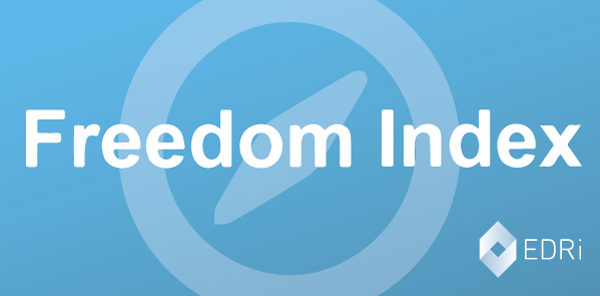The Freedom Index – easing access to information on rights issues
A diverse group of human rights defenders in the EU has launched an ambitious project that aims to radically change the way information relating to human rights is organised. If successful, the initiative will create a system that can permanently identify and preserve all human rights data across all languages, and radically improve its availability to anyone who is working on the same issues in the future.
The new project, “the Freedom Index”, is a universal indexing concept designed to catalogue all data relating to human rights and fundamental freedoms. This system of unique 12-digit numeric codes will substantially increase the visibility, longevity and effectiveness of information published in all languages.
The system (known as a “taxonomy”) assigns codes to audio and visual material, reports, judicial decisions, websites, legislation, articles, blogs, forums, research material… It is best imagined as a library index system, though instead of identifying individual works, the new index is centred on microscopically identifying subject matter, specifically, approximately a billion sub-divisions of the human rights field. The system will create an unprecedented linkage of information. This means a civil rights group in, say, France working on a campaign against online content filtering, will be able to identify information on every similar campaign in the world, regardless of the language of the published material. Presently, most data published in languages other than English are almost invisible to search engines.
The Index is the brainchild of privacy pioneer Simon Davies, founder of Privacy International and the Big Brother Awards. He collaborated on the project with other experts, namely Annie Machon, former UK Security Service MI5 officer turned whistleblower, and Robert Beens, the CEO of privacy enterprise StartPage/Ixquick.
Consultation and planning for the project began in early 2015 and included collaboration with the European Commission, Amnesty International, the Ford Foundation, the University of Amsterdam and the EU Agency for Fundamental Rights (FRA). The initiative has now been formally established in the Netherlands as a non-profit foundation (a Stichting).

Annie Machon, a Board member of the Freedom Index, says the project is essential to the functioning of civil society: “I firmly believe the Index is revolutionary – and that’s a description I rarely if ever use. One aspect that particularly interests me is the removal of linguistic barriers. We’re quickly heading toward a data meltdown and some hard choices need to be made to ensure that information can be protected and preserved.”
“I became involved in this project because I think it is essential for the development of the information age and it is crucial to the growth and integrity of human rights. If we can’t find a way to organise information, we all risk being held hostage to fortune from big commercial enterprises and for crucial information to be ‘disappeared’.”
Simon Davies described the current data problem for human rights as “systemic and dangerous”.
“Each day, millions of new items relating to human rights are added to the online environment. And yet, while this vast reserve of data continues to grow and diversify, its accessibility and visibility are shrinking. For a variety of reasons, information moves out of public reach almost as fast as it is added. Generally speaking, data are ‘dumped’ into cyberspace, and publishers tend to expect that search engines will reliably present the information on demand. This outcome is far from reality.”
“The core problem in the current online environment is that – in all but the most exceptional cases – the conduits to online information have become corrupted or obscured to the point where using conventional search has little effect. It’s fair to say that to find the ‘less popular’ items, the searcher needs either to have prior knowledge of a piece of data or access to a dedicated portal before that item can be discovered. In the vast majority of cases, neither of those conditions exist.”
Freedom Index
https://thefreedomindex.org/
The world’s most powerful human rights data initiative is unveiled (24.11.2015)
http://www.privacysurgeon.org/blog/incision/the-worlds-most-powerful-human-rights-data-initiative-is-unveiled/
Stichting the freedom index foundation registration details
https://www.opencompanies.nl/overheidsemioverheid-stichting-the-freedom-index-foundation-amsterdam-67922260


